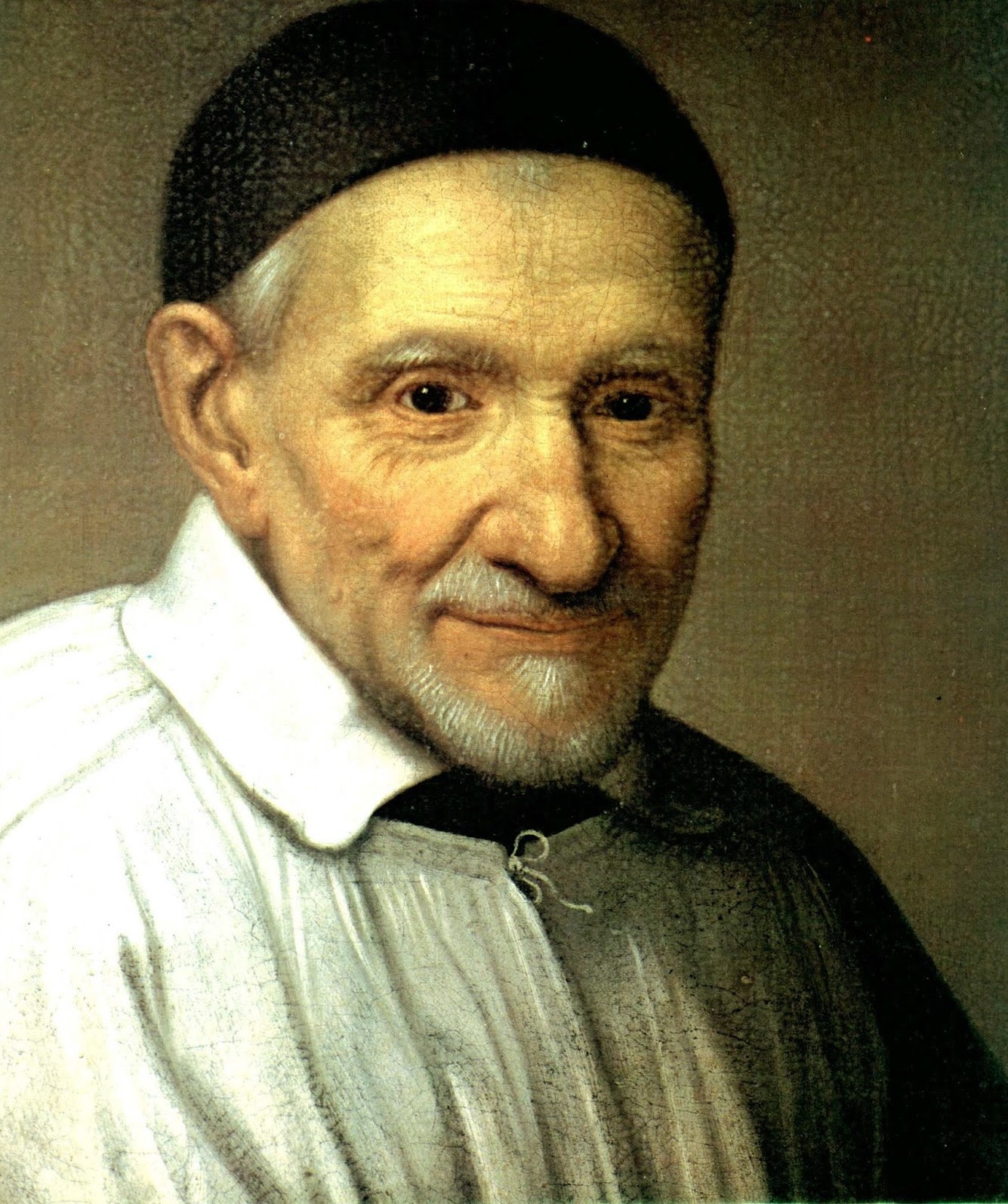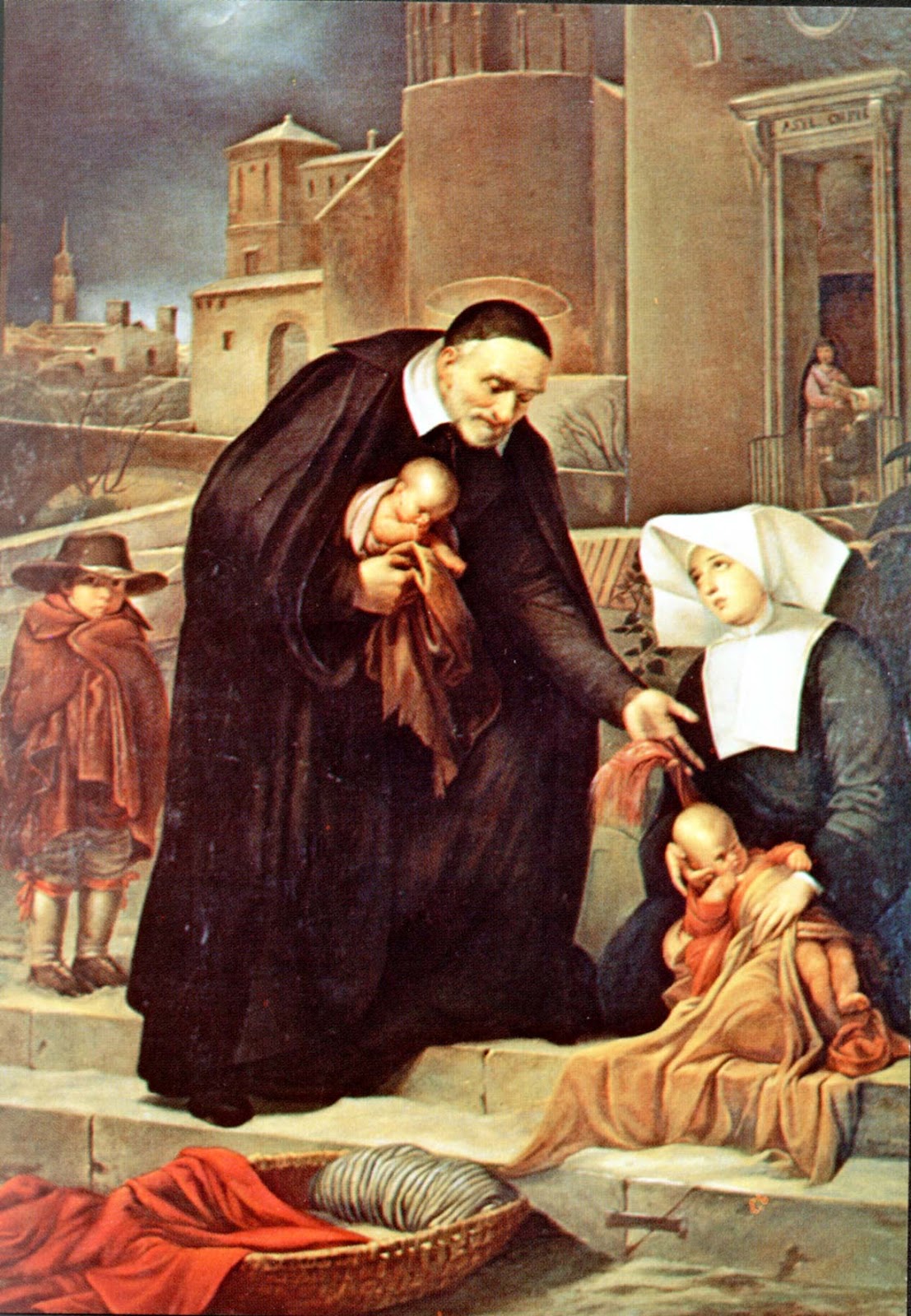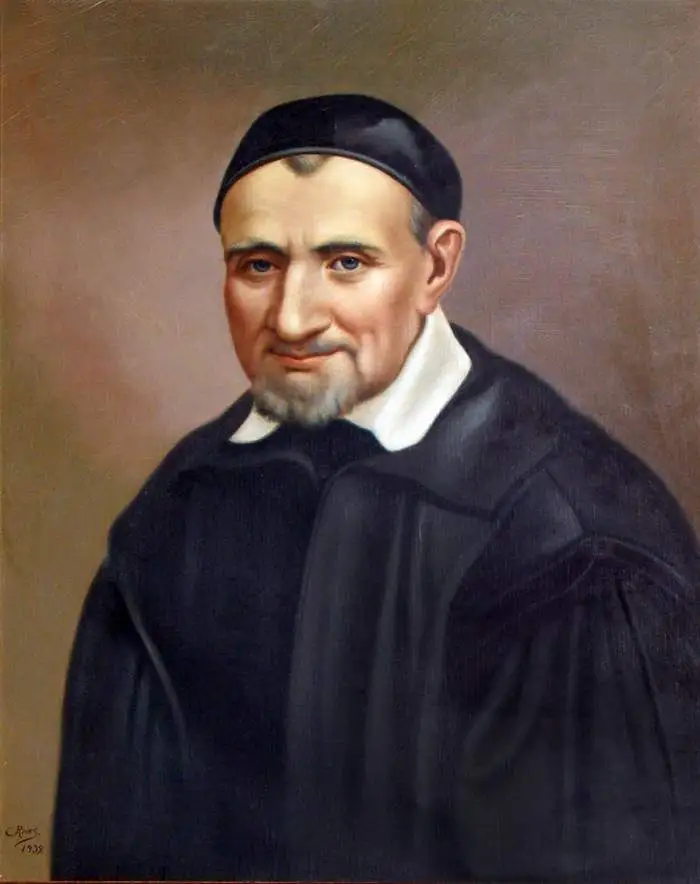“You must ask God to give you power to fight against the sin of pride which is your greatest enemy – the root of all that is evil, and the failure of all that is good. For God resists the proud.”
Vincent was born to a poor farming family in the French village of Pouy on April 24, 1581. His 1st formal education was provided by the Franciscans. He did so well, he was hired to tutor the children of a nearby wealthy family. He used the money to further his education at the University of Toulose studying Theology.
He was ordained a priest at the age of 18 with only enough ambition to have a comfortable life. When he was 23, he was captured, brought to Tunis, and sold as a slave. 2 years later he and his master escaped, and returned to France.
He continued his studies in Avignon and later Rome, becoming the chaplain to the Count of Goigny, and placed in charge of distributing money to the deserving poor. He became pastor of a small parish in Clichy for a short time while also serving as tutor and spiritual director.
A crucial moment was the deathbed confession of a dying servant to the Countess de Gondi. His eyes were opened to the crying spiritual needs of the peasantry of France. The Countess persuaded her husband to endow and support a group of able and zealous missionaries, who would work among the poor. Vincent was too humble to accept the leadership position at 1st. He began to work among the imprisoned galley slaves, extending his concern and ministry, finding a need to evangelize and assist these souls. The demand was so great and beyond his ability, that he founded the Ladies of Charity, a lay institution of women, to assist. For further help, he returned to be the leader of what is now known as the Congregation of the Mission, or the Vincentians.
He organized the rich women of Paris to collect funds for his missionary projects, founded several hospitals, collected relief funds for the victims of war, and ransomed over 1,200 galley slaves from North Africa.
This was all at a time when there were not many priests in France. What priests were there, were not well-formed, nor faithful to their obligations. Vincent pioneered a reform of the clergy, directing the manner in which they were instructed and prepared for priesthood. At one point, his community headed up 53 seminaries with very well attended retreats.
The Vincentians have endured with 4,000 members in 86 countries.
He also cofounded the Daughters of Charity with Saint Louise de Marillac, with 18,000 Daughters today, serving the needs of the poor in 94 countries.
He wrote 30,000 letters in his lifetime and nearly 7,000 had been collected in the 18th century.
Vincent was 80 years old when he died in Paris on September 27, 1660. He had become the symbol of the successful reform of the French Church and is referred to as the “The Apostle of Charity.”
Pope Leo XIII made him the patron of all charitable societies. He is also the patron saint of horses, hospitals, leprosy, lost articles, prisoners, spiritual help, Sacred Heart Cathedral Preparatory, Vincentian Service Corps, Madagascar, and Richmond, Virginia.
His feast day is September 27.
The Society of St. Vincent de Paul was founded in 1833, as a worldwide organization of lay Catholics, following Christ’s call to serve the poor, the suffering, and the deprived. Their founding activity, and still practiced today, is the Home Visit, establishing personal relationships with those in need.
“In the name of God, be attentive to the needs of those whom God has entrusted to your guidance.”
For God’s Glory.


